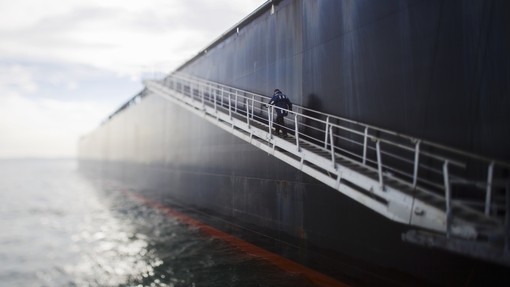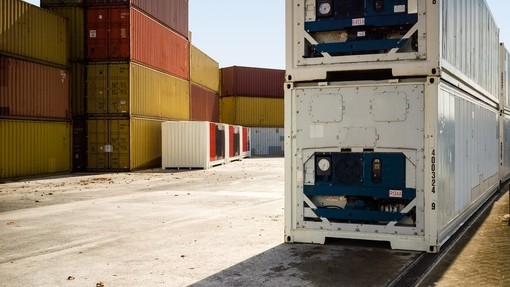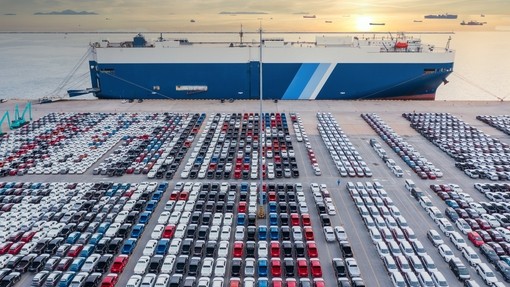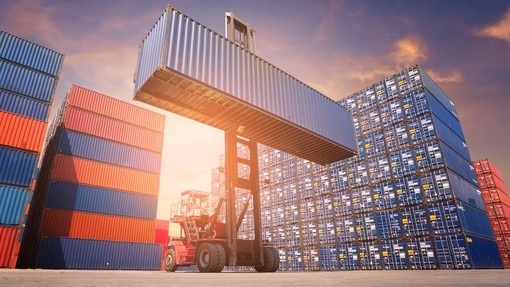The Electronic Trade Documents Bill: A revolutionary step

The Electronic Trade Documents Bill: A revolutionary step
On 12 October 2022, the United Kingdom introduced The Electronic Trade Documents Bill to parliament.
This new legislation, first proposed in the Queen’s Speech on 10 May 2022, is the next step towards untethering the marine trade community from its reliance upon paper documents.
The legislation comes after the Law Commission of England and Wales published a report on electronic trade document(s) with accompanying proposed legislation on 16 March 2022, based upon an initial consultation which occurred a year prior (from April to July 2021) (Analysis: Changing English law to recognise digital trade documents | Global Trade Review (GTR) (gtreview.com)) on this topic, in order to elicit the views of key stakeholders on the proposition of digitalising trade documents.
The purpose of the draft bill is to enable electronic trade documents to operate in the same way as a physical paper document. Such trade documents, most notably bills of lading, are crucial to the operation of maritime trade.
In our previous article we explored the premise that only physical/tangible documents can be possessed. It is this ‘possessable’ quality which gives these documents an ability to be traded or exchanged.
Under the current law of England and Wales, being the ‘holder of’ or having ‘possession of’ a trade document has special significance. However, the law does not presently allow an electronic document to be so ‘possessed’. As a result, nearly all documents used in international trade, specifically those used in maritime trade, are still in paper form.
The aim of this new legislation is to provide electronic documents with the same legal standing as their paper counterparts or the creation of legal equivalence. The effect of the legislation is essentially a new definition of the word ‘document’.
For electronic documents to have such equivalence, they must naturally meet certain criteria. It was this need for clearly defined criteria, which foreshadowed the drafting of the legislation. It was noted that ‘Ad hoc development through the common law would not provide the requisite degree of clarity’.
To evidence equivalence an electronic document would need to satisfy the following criteria: -
- It should contain the same information as would be required in paper equivalent
- It must be susceptible to exclusive control
- It must be capable of being distinguished from any copies
- It must be capable of being possessed
- It must be fully divested on transfer
- It must be underpinned by a reliable system (With reference to the technology applicable to such documents, the Law Commission states it is neutral with its recommendations, however blockchain encryption would support such efforts)
The outcome of such equivalency between the various forms of documents routinely used in international trade would have many positive effects. Primarily it has the capacity to revolutionise trade.
The benefits ascribed to the reputation of England & Wales as a global centre of trade contracts would automatically be enhanced. The Law Commission quotes estimates from the International Chamber of Commerce (ICC) that digitising trade documents could generate £25 billion in economic growth by 2024.
Dealing electronically with such documents would be more efficient. The ICC has estimated that digitalising trade documents would free up £224 billion in efficiency savings - a significant reduction in operating costs and administration, making it much easier to trade internationally.
As businesses (and governments) become increasingly environmentally conscious, the benefit of using less paper is paramount. A single trade finance transaction can require between 10 and 20 paper documents, the equivalent of hundreds of pages.
Paramount is the fact that the use of electronic documents can provide increased security. Loss of a physical document can essentially be ruled out. Electronic documents offer greater transparency and traceability while technology can provide greater security. Human error leading to the creation of non-compliant documents can be mitigated or reduced.
If the Bill is given assent, England and Wales will be one of very few jurisdictions that recognises the equivalency of electronic documents.
To advance the revolution in trade promised by such proposals, other jurisdictions will need to adapt their operational practices and reform their legal frameworks in order to recognise such documents.
Only then can a trade transaction be capable of being fully digitalised.
If such documents are not accepted ‘globally’ this rather mothballs an otherwise progressive and highly desirable mechanism.
The government will need time to liaise with other jurisdictions in respect of cooperation agreements, as there seems little to be gained by individual countries introducing their own legislation in a piecemeal uncoordinated fashion where no reciprocity exists.
The desire of those operating within the marine trade sphere may put the necessary pressure required on other jurisdictions to follow suit.
There is little doubt that the government will also be liaising with collectives like the FIT Alliance, a group of organisations committed to collaborating to standardise the digitalisation of international trade and facilitate the use of electronic bills of lading.
Stakeholders will need to adopt new technology and adapt their knowledge and skills to trade effectively using such documents. There will be a steep learning curve for some and financial investment for all, should the legislation become law.
While this is outwardly a very positive step for many reasons it appears that we are still far from being in a position where any legislation can be enacted to the desirable global degree - which is, after all, its aim.






